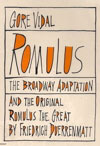 |
ROMULUS by Gore Vidal A play about the last emperor of the Roman Empire, set in 476 A.D., first produced on Broadway in 1962. Vidal adapted his play from a work by Friedrich Duerrenmatt, also included in this volume. |
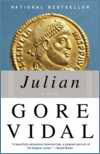 |
JULIAN by Gore Vidal Vidal’s novel of the last Pagan emperor became an international bestseller and set him on the path to becoming America’s foremost historical novelist.
|
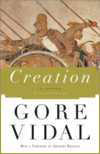 |
|
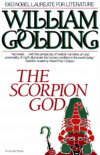 |
THE SCORPION GOD by William Golding Three short novels by the Nobel Prize-winning author of Lord of the Flies, including Envoy Extraordinary, set in Imperial Rom |
 |
ANTINOUS: A Romance of Ancient Rome by Adolf Hausrath aka George Taylor German novel from 1882 offers its own unique insights into the relationship of Hadrian and Antinous. |
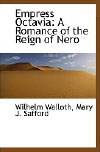 |
EMPRESS OCTAVIA: A Romance of the Reign of Nero by Wilhelm Walloth German novel from 1900 recounts the remarkable life of the daughter of Claudius and Messalina, who was Nero’s stepsister and first wife. |
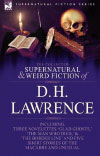 |
THE SUPERNATURAL & WEIRD FICTION OF D.H. LAWRENCE includes the controversial novelette “The Man Who Died,” about the wanderings of Jesus after not dying on the cross... |
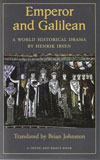 |
EMPEROR AND GALILEAN by Henrik Ibsen Ibsen’s epic 10-act play about Julian, the last Pagan emperor, is a “gargantuan masterpiece” (Booklist). |
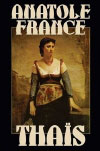 |
THAÏS by Anatole France The story of an Alexandrian courtesan and the ascetic holy man determined to convert her, by the Novel Prize winning author of Penguin Island. |
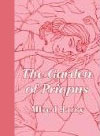 |
THE GARDEN OF PRIAPUS by Alfred Jarry A novel of the scandalous empress Messalina by the author of the absurdist classid Ubu Roi. |
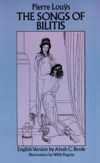 |
THE SONG OF BILITIS by Pierre Louys The lyrical Sapphic classic long banned in the U.S. |
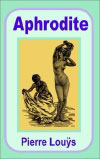 |
APHRODITE by Pierre Louys First published in 1896, this heady novel depicting courtesan life in ancient Alexandria became the best-selling work by any living French writer. |
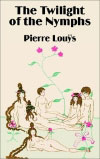 |
THE TWILIGHT OF THE NYMPHS by Pierre Louys Seven erotic fables based on mythology. Also by Louys: |
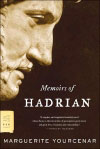 |
MEMOIRS OF HADRIAN by Marguerite Yourcenar A meditation on life and death, seen through the eyes of one of Rome’s greatest emperors. One of the most acclaimed novels of the 20th century. |
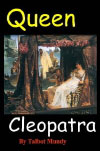 |
CLEOPATRA by Talbot Mundy One of the most vividly written of all Cleopatra novels, by an author who has become the stuff of legend. |
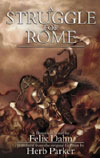 |
A STRUGGLE FOR ROME by Felix Dahn The colossal German classic set in the reign of Justinian and Theodora, translated at last into English. |
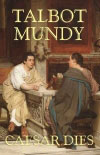 |
CAESAR DIES by Talbot Mundy A tale of palace intrigue in the reign of the gladiator emperor Commodus, set amid the brutalities and debaucheries of Rome and Antioch. |
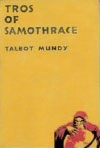 |
TROS OF SAMOTHRACE by Talbot Mundy The legendary adventures of the Druid warrior Tros and his duel of wits with Julius Caesar. |
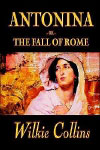 |
ANTONINA, OR THE FALL OF ROME by Wilkie Collins 408 A.D.: The Goths descend on Rome in this epic by the author of The Woman in White and The Moonstone. |
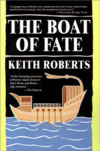 |
THE BOAT OF FATE by Keith Roberts Panoramic novel of the disintegrating Roman Empire follows a young adventurer from Rome to Hispania, Gaul, and Britannia. |
 |
THE EGYPTIAN by Mika Waltari The worldwide bestseller, with a foreward by Lynda S. Robinson. Also by Waltari: The Roman and The Etruscan. |
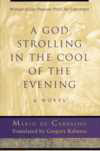 |
A GOD STROLLING IN THE COOL OF THE EVENING by Mario de Carvalho Prize-winning novel of moral conflict in the age of Marcus Aurelius, translated from the Portuguese. |
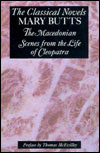 |
THE CLASSICAL NOVELS by Mary Butts Two lyrical novels from the 1930s by a member of the Bloomsbury set, The Macedonian (about Alexander
the Great) and Scenes from the Life of Cleopatra. |
 |
THE DEATH OF VIRGIL by Hermann Broch In his final hours, the poet contemplates destroying his masterpiece, The Aeneid. “Extraordinary and profound” (Thomas Mann) |
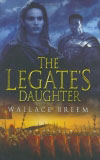 |
THE LEGATE’S DAUGHTER by Wallace Breem A disgraced centurion goes on a mission to rescue a kidnapped woman in North Africa. |
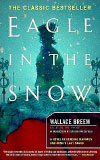 |
EAGLE IN THE SNOW by Wallace Breem General Maximus makes a last stand against barbarians on the Rhine. Introduction by Steven Pressfield. |